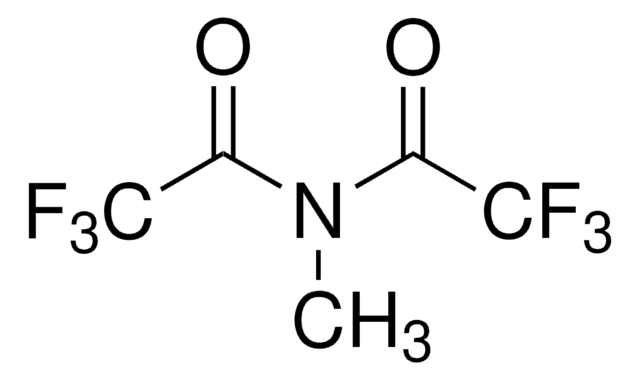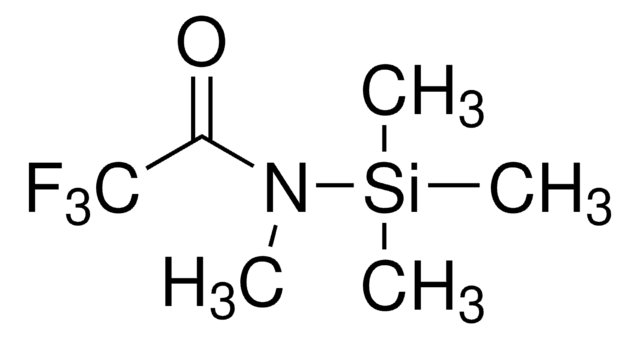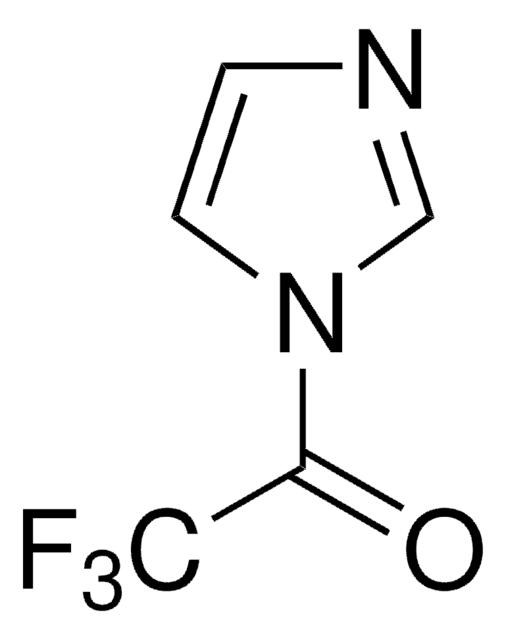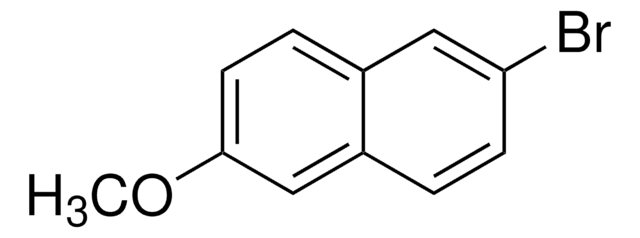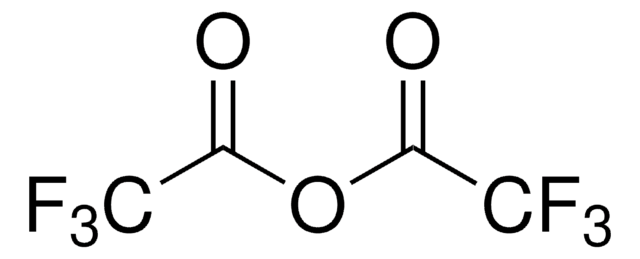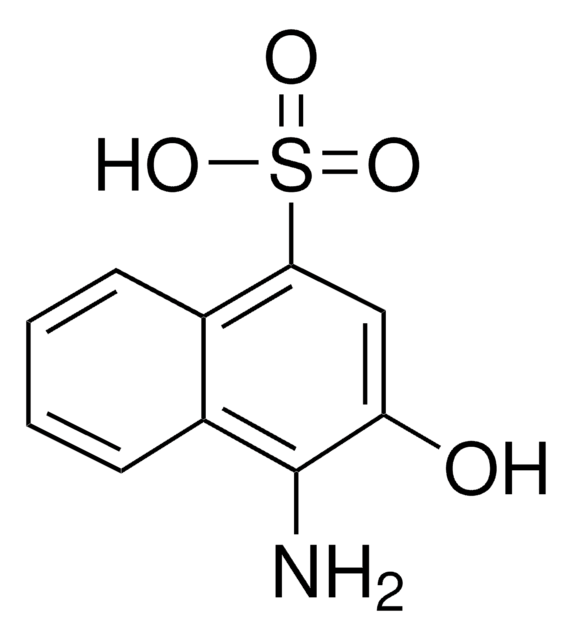65943
N-Methyl-bis(trifluoroacetamide)
for GC derivatization, LiChropur™, ≥99.0% (GC)
Synonym(s):
MBTFA
About This Item
Recommended Products
grade
for GC derivatization
Quality Level
Assay
≥99.0% (GC)
quality
LiChropur™
reaction suitability
reagent type: derivatization reagent
reaction type: Acylations
reagent type: derivatization reagent
reaction type: Silylations
technique(s)
gas chromatography (GC): suitable
refractive index
n20/D 1.346 (lit.)
n20/D 1.346
bp
121-122 °C (lit.)
density
1.547 g/mL at 25 °C
SMILES string
CN(C(=O)C(F)(F)F)C(=O)C(F)(F)F
InChI
1S/C5H3F6NO2/c1-12(2(13)4(6,7)8)3(14)5(9,10)11/h1H3
InChI key
AWGBWLXGUPTXHF-UHFFFAOYSA-N
Looking for similar products? Visit Product Comparison Guide
General description
Application
It is a derivatization agent in GC-MS technique used as an alternative to trifluoroacetyl anhydride (TFAA) for trifluoroacylating primary and secondary amines, and the hydroxyl group under mild non-acidic conditions.
Reagent for introducing trifluoroacetyl group. Suitable for the derivatization of alcohols, amines, amino acids, carbohydrates(mono-,di-,tri- and tetrasaccharides, carboxylic acids, hydroxyamines, 3-hydroxy-1-nitrosopyrrolidine, indolalkylamine, phenolalkylamines, pyridoxal (and other B6 vitamers), and thiols.
Other Notes
Legal Information
Signal Word
Danger
Hazard Statements
Precautionary Statements
Hazard Classifications
Flam. Liq. 3 - Skin Corr. 1B
Storage Class Code
3 - Flammable liquids
WGK
WGK 3
Flash Point(F)
113.0 °F - closed cup
Flash Point(C)
45 °C - closed cup
Personal Protective Equipment
Choose from one of the most recent versions:
Certificates of Analysis (COA)
Don't see the Right Version?
If you require a particular version, you can look up a specific certificate by the Lot or Batch number.
Already Own This Product?
Find documentation for the products that you have recently purchased in the Document Library.
Customers Also Viewed
Our team of scientists has experience in all areas of research including Life Science, Material Science, Chemical Synthesis, Chromatography, Analytical and many others.
Contact Technical Service